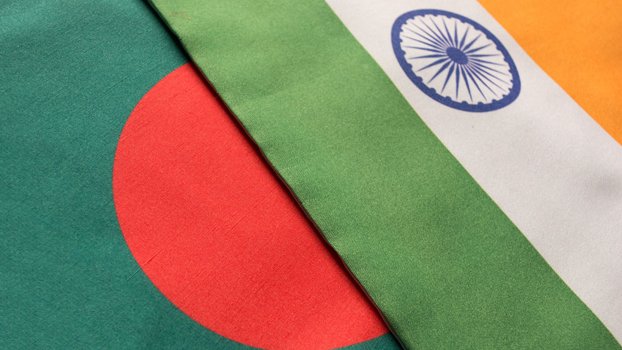Bangladesh-India relations and Narendra Modi’s upcoming visit
The forthcoming visit of Prime Minister of India Narendra Modi to Bangladesh is a reminder of the strong ties between the two n


India-Bangladesh diplomatic relationship has always been a matter of great significance for both the countries. The eyes of people of both the nations, especially Bangladesh, are now on the visit of Indian Prime Minister Narendra Modi to Bangladesh on March 26. Barring a few blips, the bilateral ties have moved forward apace since Prime Minister Sheikh Hasina took power a decade ago.
Overcoming the animosity of the BNP-Jamaat era, strong confidence has been created between both the governments as well as the people of the two countries. Substantial diplomatic significance is attached to the fact that Bangladesh heads Modi’s first visit list post coronavirus period and that he will be in Dhaka for the country’s golden jubilee independence celebrations.
Earlier, Modi visited Bangladesh in 2015, one year after winning the 2014 election and forming the government. Since then a strong morale has been created among the people of Bangladesh and India. The lost faith of the people has been brought back.
The foundation of friendship between the two countries was laid in 1971, through the unwavering support of the government and people of India in the great war of liberation. The people of Bangladesh still remember with respect the support and assistance given by India at that time.
Firstly, India did not hesitate to recognize the self dignity and independence of post liberation Bangladesh. In return Bangladesh did not show stinginess to repay them. It is true that India always wants to maintain democratic and friendly relationship with Bangladesh for its regional interests.
From March 25, 1971 Pakistan went on a killing spree over the independence loving Bengalis. Pakistan killed three million people in Bangladesh during the nine month war, which has been ranked one of the worst incidents in the world history. During the war many Bengalis migrated to India in groups to escape the barbaric killings and torture of Pakistan. India not only provided shelter for them but also provided them with food and clothing.
After the independence of Bangladesh, India also provided all possible assistance in the reconstruction of the country. However, after the assassination of Bangabandhu Sheikh Mujibur Rahman in mid August of 1975, the relations between the two countries were at a crossroads.
However, after Bangabandhu’s worthy daughter Sheikh Hasina came into power in 1996, trust was restored between the two countries again. During that time she quickly signed the ‘Peace Accord’ overcoming the instability in the Chattogram Hill Tracts, which has been the source of water in the Ganges for decades.
Then again the great victory of the Hasina government back in 2008 election created a new context for the development of relations between both the countries. The positive journey that started with the visit of the Prime Minister of Bangladesh to India in 2010 is still continuing now with the visit of charismatic leader and the Prime Minister of India Narendra Modi to Bangladesh. Recently, the bond became more formidable after the Indian Government provided 20 lakh doses of Oxford-Astrazenca COVID-19 vaccines to Bangladesh.
Ahead of this visit, both sides are keen to boost rail, road and waterway links, which would benefit India’s north-east states. One confidence-building measure has been reopening of the Maitree Setu linking Tripura with Bangladesh, that brings India’s north-east closer to Chattogram and other Bangladeshi ports. To improve relations at the local level, several markets have also been opened at border locations where trade is conducted in rupees and takas. Both sides will also want to resolve the border issues and focus on new areas in the development of trade relations. Import of electricity from India to Bangladesh and one million dollar loan from India are some of the notable issues that will be discussed on the table.
India and Bangladesh have gone beyond short-term or issue-based solutions to bring the relationship into a larger framework. In addition, the two sides adopted a policy of giving maximum concessions in diplomatic bargaining.
The most pivotal initiative that the both countries have remained committed, is their constant reaffirmation to work together on counter terrorism and security cooperation. All in all, a fairly positive atmosphere has been created for the development of relations between the two countries.
The success of the upcoming visit of Indian Prime Minister Narendra Modi to Bangladesh is important for India for various reasons. Diplomatically, Bangladesh-India relations, which have gone through ups and downs in the last 40 years, have been shown to be successful in bringing them into a continuum. India is one of the most important countries as a source of import trade for Bangladesh. India’s presence in Bangladesh’s export trade is also increasing and will keep on increasing in the future.
This is exactly why India and Bangladesh are essential to each other. Apart from being the closest neighbours both countries have many positive sources. Both Bangladesh and India are democratic nations and they have adopted democracy as a core element of their respective states. As the democracy of India has gained depth so has the democracy of Bangladesh has proved that it is acting as a secular force without competing with the religious consciousness.
The forthcoming second visit of two-time Prime Minister of India Narendra Modi to Bangladesh is a reminder of the strong ties between the two nations and through this we hope both countries and its people will be able to avail the fruitful benefits.
Badhan Sarkar is working as a feature writer at Bangladesh Post



